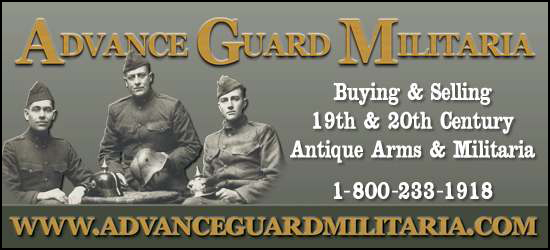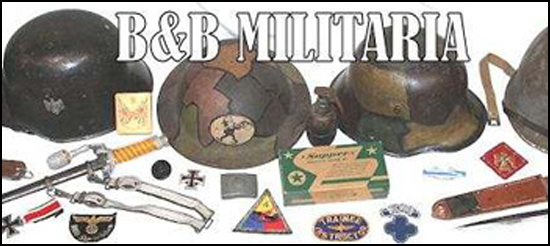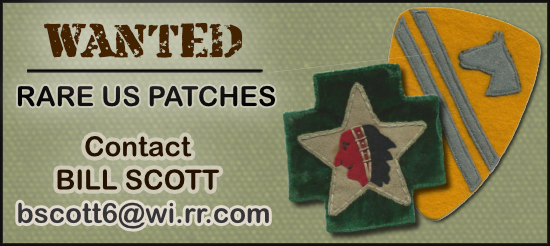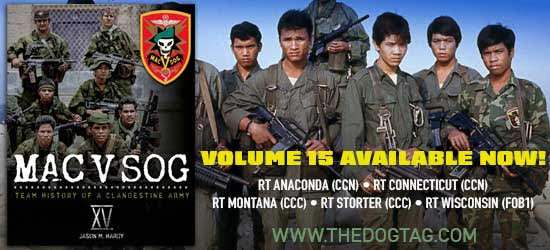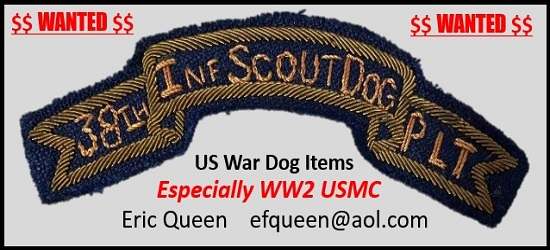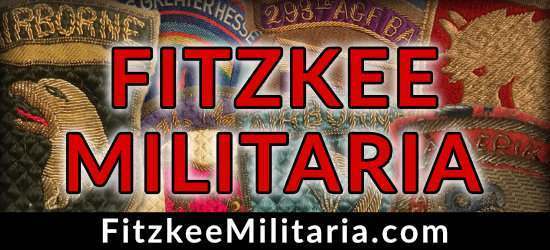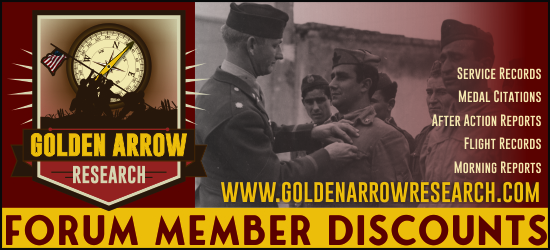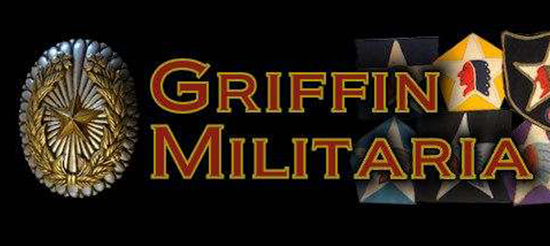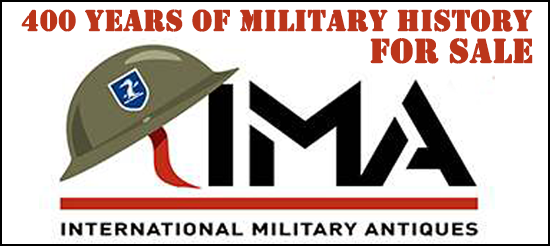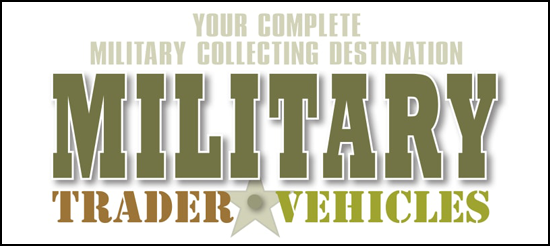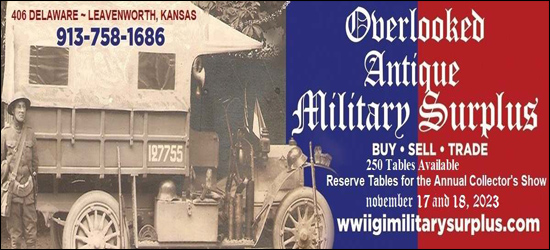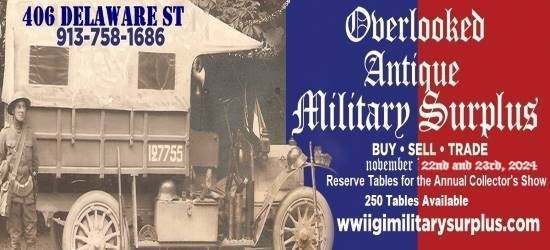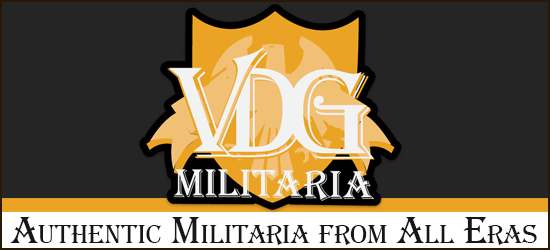-
Donate
Type donation amount in box below.
IMPORTANT! If you donate via PayPal using an e-mail address different than the one you are currently using on USMF and would like a 2024 Donor Icon added to your account, you MUST CONTACT vintageproductions or stratasfan and let them know what email address was used for the donation.
Thank you for supporting USMF.
Donate Sidebar by DevFuse -
Recent Posts
-

By WalkaHeap1989 · Posted
Henry Walter Kingsbury was born on Christmas Day, 1836, to Lieutenant Julius Kingsbury, a U.S. Regular Army officer within the Third Infantry Regiment. Henry had the typical "military brat" upbringing and was surrounded by well-known officers his whole life. His sister, Mary Jane, was married in 1850 to his father's friend, Simon Bolivar Buckner, a future Confederate General and governor of Kentucky. When Henry's father died in 1856, Buckner was to act as a guardian for the young Kingsbury, who had just been accepted into the U.S. Military Academy at West Point. Also appointed as co-guardian, was the future Union General and governor of Rhode Island, Ambrose Burnside. Henry Kingsbury graduated fourth in the West Point class of 1861, along with other famous cadets Adelbert Ames, Hugh Kilpatrick, and Emory Upton. Also graduating shortly after, but probably not unknown to Kingsbury, was George Armstrong Custer. Henry Kingsbury was promoted to lieutenant of the 5th U.S. Artillery immediately upon graduation and acted as aide de camp to Irvin McDowell through the remainder of 1861. In December of 1861, Henry married Eva Taylor, niece to the 12th U.S. President, Zachary Taylor, and sister-in-law to Confederate General, David R. Jones. Following the North Carolina expedition in early - mid 1862, the majority of the officers of the 11th Connecticut Volunteer Infantry resigned their commissions. Kingsbury, with his ancestral ties to the state of Connecticut, and cousin to the former commander of the 11th, T.H.C. Kingsbury, was elected to take over the Colonelcy of the regiment. Due to his duties with the 5th Artillery, Henry was not able to join the sons of Connecticut until July. Upon his arrival, Kingsbury found the regiment to be in poor shape and lacking the discipline he had obtained at West Point. In the book "The Military and Civil History of Connecticut During the War of 1861-65" by W.A Croffut and John M. Morris, Kingsbury's military demeanor was described as such: " He loved the right because it was the right; but he was virtuous also because he knew that vice degrades a soldier, abstemious because intemperance is fatal to military success, and manly and gentlemanly because it was impossible for him to be otherwise. His knowledge was mainly of the useful and practical order; yet he possessed a keen appreciation of elegant culture and delighted to listen to and join in conversations on literary or philosophical topics. He had a thoroughly military idea of what was due to his uniform, and insisted, to the smallest detail, on observances of etiquette and salutations, because he 'owed it to his straps to see them honored'.". Nathan Mayer, assistant surgeon to the 11th Connecticut Infantry, continued with the following descriptions of Kingsbury as the regiment marched to meet its fate at Antietam Creek: "There was the young colonel, wrapped in his blankets, with the square, manly face, the profusion of blonde mustache and whisker, the large, earnest blue eye, and the sweet, womanly mouth that could so easily assume the expression of firmness and determination. God bless him! He made us all better and nobler." On the morning of September 17, 1862, Kingsbury received orders from his former guardian, now commander, Ambrose Burnside, to lead the U.S. 9th Corps attack on the Rorbach Bridge, spanning the swift, chest deep, Antietam Creek. Kingsbury, at the head of his regiment, led them forward, through nearly 300 yards of open field, the regiments left wing in skirmish order, while the right wing attempted to storm the bridge. The fire from the Confederate defenders was deadly. While Kingsbury attempted to rally the regiment, he was wounded for the first time in the heel of his foot. At nearly the same time, Captain John Griswold, commanding company A of the regiment, went to glory by attempting to ford the creek at the head of his company. Kingsbury was wounded a second time, in the shoulder, which knocked him to the ground. Other officers and men attempted to convince Henry to retire, when he was struck a third and fourth time in the right leg, and abdomen, respectively. The fourth wound was the fatal blow, and Kingsbury died the following day, September 18, and the Federal Army of the Potomac was lesser for it. Nathan Mayer recalled later in Croffut's book: "When soon after I pressed my lips in last adieu upon that forehead cold in death, I felt that, when I should next behold it, it would be crowned with the aureola of a hero and saint. When I said to Lieutenant Colonel Stedman after the battle, 'the Colonel has opened his eyes, and given me the sweetest smile, and then closed them forever, he silently pressed my hand, and went to take a farewell look at him whom we all adored". Following the battle of Antietam, General Burnside issued Special Orders number 47, which reads: "By this sad calamity, the army mourns one of the most accomplished of those young officers who in a few months have become veterans in their country's service. After serving with distinction through the campaigns of the Peninsula, Colonel Kingsbury was promoted to his late command; and in that office, occupying positions of great responsibility, invariably proved himself to the occasion, displaying always a gallantry and skill that gave high promise for the future. As a near friend of Colonel Kingsbury, the commanding general wishes to add this testimony to his private worth, to the purity of his character, and to the possession of those high qualities of mind and heart that form the sterling man as well as the finished soldier." Henry Kingsbury was buried in Oak Hill Cemtery in Washington D.C., along with other notable Civil War officers, including Major Jesse Reno, killed during the fight for South Mountain a few days prior. Kingsbury's widow, Eva, gave birth to a son, Henry Walter Kingsbury Jr. on December 16, 1862, less than three months after his father's death. In a horrid twist that is all too common in large, well-known families during the civil war, the soldiers opposing the 11th Connecticut on that fateful day, the 2nd and 20th Georgia Infantry regiments, were commanded by none other than Kingsbury's brother-in-law, Confederate General David R. Jones. It is said that once Jones was made aware of this fact, he was inconsolable, and even General Robert E. Lee noted the complete change in character in him. Jones stepped down from command late in 1862 owing to an aggravated heart condition and died in January 1863. Those that knew him best said he died of a broken heart for the part he played in the death of his brother-in-law. -

By Sophie · Posted
That must’ve been absolutely incredible. A supersonic F-14 pass that close to the deck? I can only imagine the sheer force of that double boom—sounds unforgettable. -

By Sophie · Posted
That sounds absolutely unreal—what a moment to witness firsthand! I can only imagine how it felt to be sitting in a C-130, watching the SR-71 light up its afterburners right in front of you. The sight of those twin flames and the ground-shaking rumble must’ve been unforgettable. -

By Sikorsky · Posted
First time posting and new to the site. I'm restoring a Cessna L19, and looking for the mounting system and white phosphorus rockets. It doesn't need to be absolutely correct, similar will do. Thoughts? Suggestions? Zach from MN -

By Sophie · Posted
Rakkasans—now that’s legendary! Huge respect. Must’ve been incredible (and intense) seeing that kind of firepower in action from the ground. The coordination between the Air Force and units like yours during live-fire must have been something to witness. -

By Sophie · Posted
Ah yes—the “Tweet”! That high-pitched whine could really cut through everything. It might not have been the loudest in raw decibels, but it sure felt like it. I’ve heard people say it could give you a headache from across the ramp. -

By WalkaHeap1989 · Posted
I have two CDVs of identified Union officers. I'm going to post them in two separate posts as I have done write ups on both. Born on April 24,1837, John Griswold was born into a wealthy family in Old Lyme Connecticut. John was an exceptional person, having graduated Yale University in 1857, at age 20. He spent the following year surveying Kansas, and then sailed to Hawaii in 1860. Upon learning of the outbreak of the American Civil War, Griswold returned home and was brought on as a lieutenant in I Company, of the 11th Connecticut Infantry. In the spring/early summer of 1862, Griswold was promoted to captain of Company A. In the book "The Military and Civil History of Connecticut During the War of 1861-65" by W.A Croffut and John M. Morris, Nathan Mayer, former surgeon of the 11th Connecticut Infantry, had the following to say of Griswold: "He was a great-hearted gentleman, well born, liberally educated, and his character was trained, and his heart disciplined". During the march to the eventual battle of Antietam, Mayer reminisced further: "We admired the mountain gorges through which we passed. We saw greenwoods fair and orchards gay, rich fields, and well to do farmhouses. We quoted Horace, and discussed questions of moral philosophy, and skipped over literature, from St. Augustine's De Civitate Dei to Hugo's Les Miserables; and all this time, day or night, rain or sunshine, fatigued or fresh, hungry or satiated, he(Griswold) would preserve the same cheerfulness of demeanor, and never forget the least of those courtesies which make life in refined circles run in such an even course. It was as if he was never out of the drawing room. Nor was this intended for equals alone. He was particular in extending the same courtesies to the soldiers under his command".Based on this it is easy to assume that Captain Griswold was a truly respected and loved commander. On September 17, 1862, when the 11th Connecticut attacked the now infamous Burnside Bridge, Captain Griswold, rallying his company to him, attempted to ford the creek on the south side of the bridge, in an effort to gain a foothold on the opposite bank. He was shot through the chest mid-stream, and fell upon the far bank. Surgeon Mayer, along with four privates, risking their own death for their beloved comrade, jumped into Antietam creek, and under fire, recovered Griswold, bringing him to a nearby shed while the battle raged around them. Mayer did what he could for Griswold, providing morphine when Griswold said to him “let me die quickly, and without pain, if you can.” His last words, now forever etched on his monument in the Griswold family Cemetery in Old Lyme CT, were “Tell my mother that I died at the head of my company.” He was 25 years old. -

By Sophie · Posted
That’s incredible—respect for your service, Chief. Being on the flight deck day in and day out with that kind of raw power around you must’ve been both exhilarating and exhausting. The kind of experience you just can’t get anywhere else. -

By Sophie · Posted
Wow—every day and night at Kandahar? That must’ve been intense. I can only imagine how those takeoffs and landings felt up close, especially with all that activity going on constantly. Did you ever get used to the noise, or did it always feel like your bones were shaking? -

By Sophie · Posted
I’ve heard stories about how brutal the EA-6B can be up close, and your description just confirms it! "Rattle the teeth right out of your mouth"—that says it all. I can only imagine the sheer force of that sound on the flight deck. Grabbing a padeye and cracking your mouth open sounds like survival 101 out there!
-
-
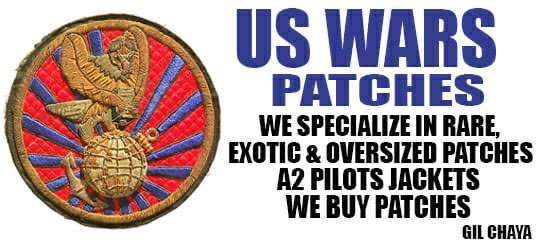
-

-
* While this forum is partially supported by our advertisers, we make no claim nor endorsement of authenticity of the products which these advertisers sell. If you have an issue with any advertiser, please take it up with them and not with the owner or staff of this forum.




